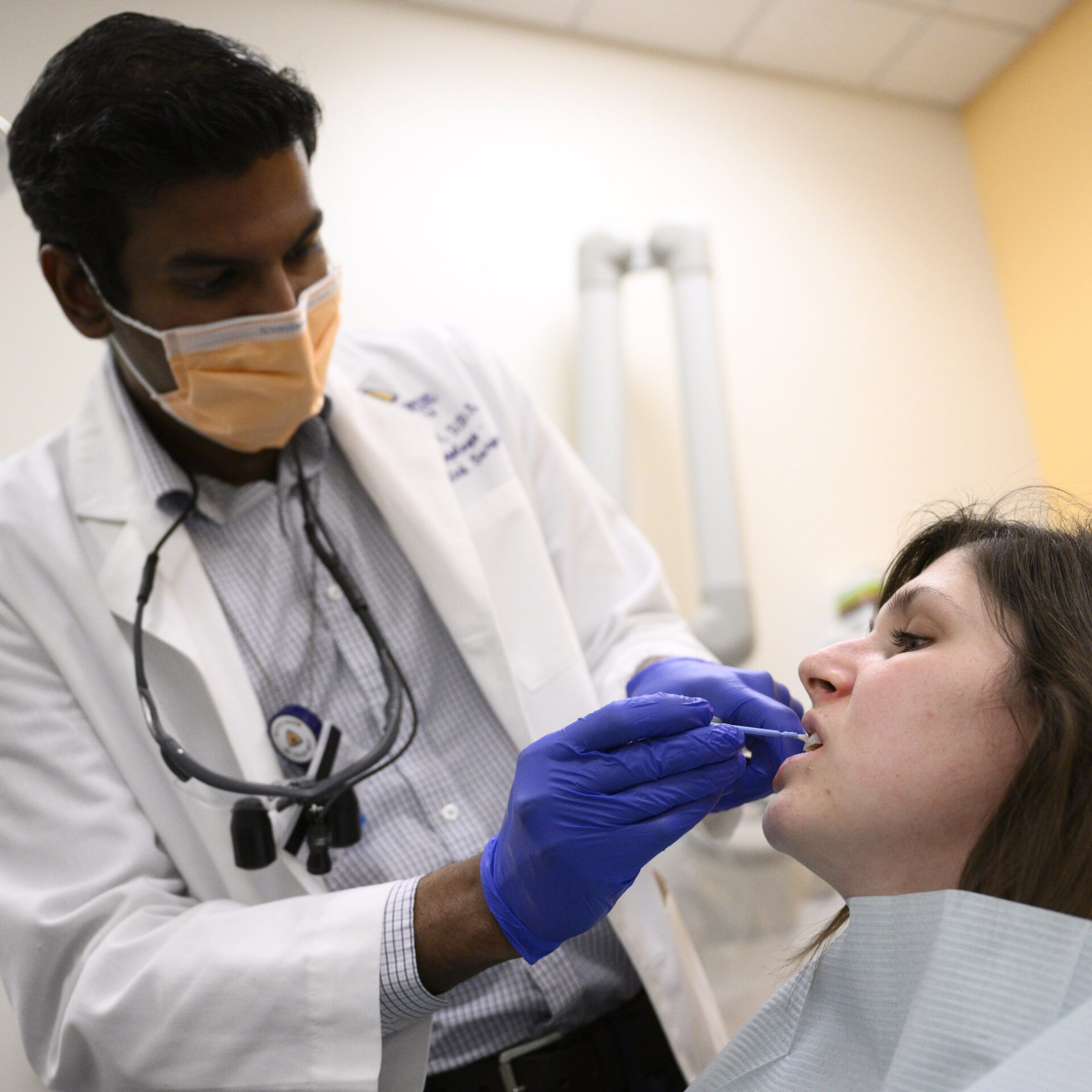
When Tristen Boyer recently had a couple of cavities filled, her dentist suggested she get fluoride treatment afterward. She has Crohn’s disease, which puts her at increased risk for tooth decay.
“It’s something I felt like I should get done,” the 22-year-old University of Kentucky student said. “It’s something I’m going to keep doing.”
Dentists and hygienists often propose fluoride treatments to patients in the dental chair to prevent cavities and strengthen teeth. But the relatively simple procedure—which involves applying a varnish, gel or foam directly to the teeth—isn’t always covered by insurance, especially for adults.
So when is it worth getting? Here are some ways to figure that out.
Who needs in-office fluoride treatment?
If there’s a high risk of tooth decay, then professional fluoride treatments can help.
But if “you haven’t seen any decay in years, you’re probably OK. What you’re doing at home is probably enough,” said Dr. Robert Weyant at the University of Pittsburgh.
Besides looking at cavity history, your dentist may also ask about risky behaviors, such as drinking lots of soft drinks, and your oral health regimen.
Patients “who don’t have access to fluoridated water, don’t use fluoridated toothpaste or don’t floss regularly” may be good candidates for fluoride treatments, said Dr. Alex Daniel of Johns Hopkins University.
Treatments may also benefit certain groups more than others. Women in menopause, for example, experience hormonal changes that can lead to oral health problems. And people taking certain medications can get dry mouth, which means fewer bacteria-killing enzymes and potentially more decay.
For patients deemed to be at risk, dentists generally recommend treatments every three, six or 12 months.
What are the pros and cons of fluoride treatment?
Dental fluoride prevents decay by helping tooth enamel—the hard outer layer of the tooth—better resist acid caused by bacteria in the mouth.
“Acid dissolves away tooth enamel, which weakens it—which is what makes cavities,” said Ohio dentist Dr. Matthew Messina, a spokesman for the American Dental Association.
Fluoride, a mineral, strengthens the enamel, making it harder.
The scientific evidence behind fluoride treatments is stronger for children than adults. But whether the benefit is stronger for kids is uncertain, Weyant said, because there hasn’t been as much research in adults.
Dentists said there are no safety concerns about the treatment. The only real side effect is an uncommon one called fluorosis, a cosmetic discoloration of the teeth if someone gets a little too much fluoride.
Dental experts acknowledged that recent opposition to fluoride in drinking water by some—including Robert F. Kennedy Jr., the nation’s new health and human services secretary —may give some people pause. But even if you use fluoride toothpaste, drink fluoridated water and get occasional in-office fluoride treatments, dentists said you’re getting a relatively small amount of the mineral that poses no danger.
Is fluoride treatment worth it?
Fluoride treatments cost anywhere from around $25 to $55. Though many insurers cover the cost for kids, adults generally pay out of pocket.
Boyer, who used to get the treatments as a child, paid $30 for her first adult treatment. Though she wishes it was covered by insurance, she said that’s a small price to pay to prevent decay, expensive dental procedures and possible tooth loss.
“We only have one set of teeth,” she said. “The longer you can keep them, the longer you should.”
© 2025 The Associated Press. All rights reserved. This material may not be published, broadcast, rewritten or redistributed without permission.
Citation:
Do you need fluoride treatment after a teeth cleaning? Dental experts weigh in (2025, March 5)
retrieved 5 March 2025
from https://medicalxpress.com/news/2025-03-fluoride-treatment-teeth-dental-experts.html
This document is subject to copyright. Apart from any fair dealing for the purpose of private study or research, no
part may be reproduced without the written permission. The content is provided for information purposes only.




